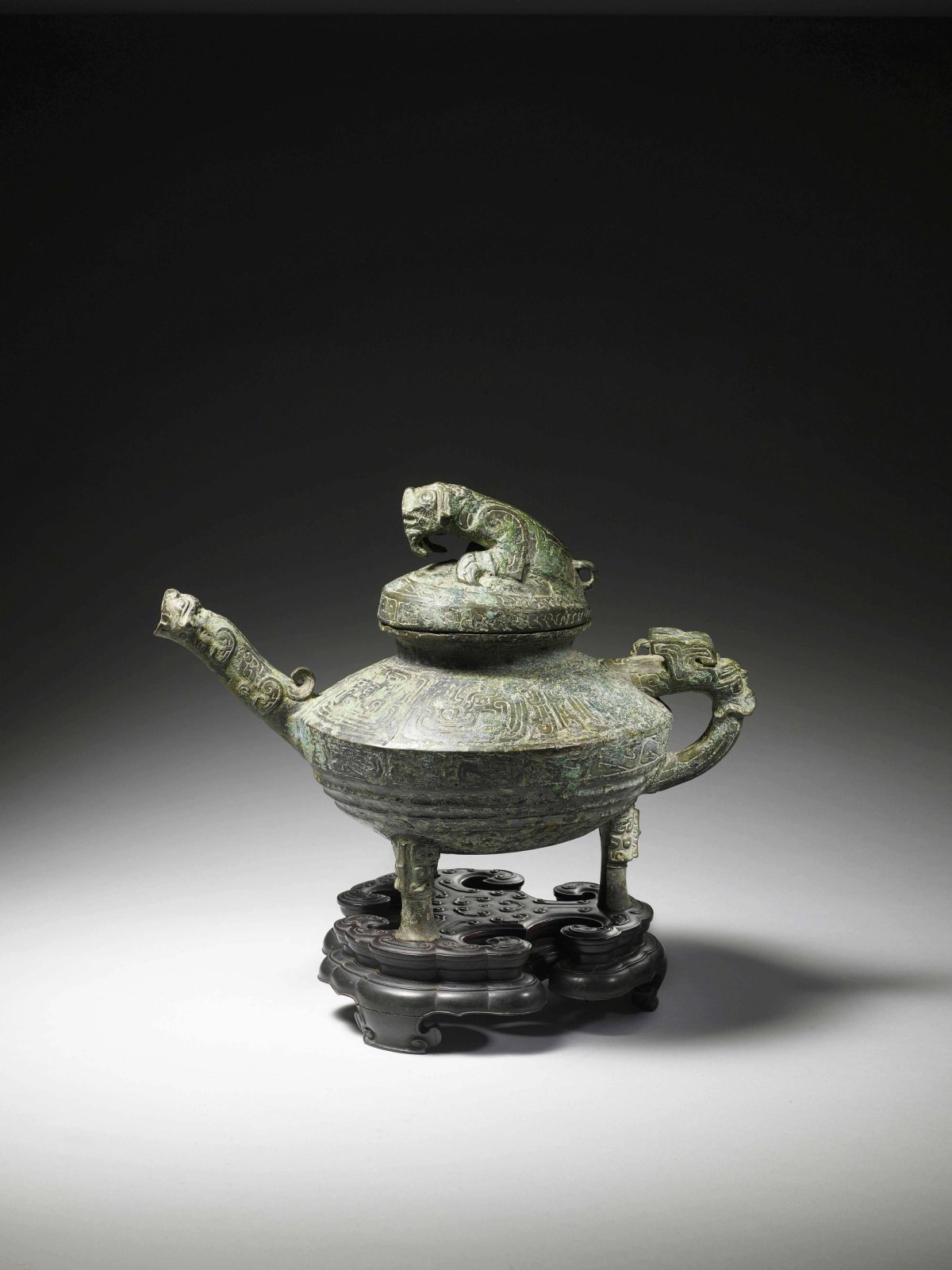Despite China’s attempts to stop the sale, the Tiger Ying, an archaic bronze water vessel taken by a British soldier from the Old Summer Palace in 1860, was sold in the UK yesterday for £410,000 (plus fees) to an anonymous buyer. Its sale at The Canterbury Auction Galleries proceeded in the face of outcry in China, including calls by its State Administration of Cultural Heritage and the China Association of Auctioneers to boycott the sale.
The vessel, which dates to the Western Zhou (1027-771 BC) period, was rediscovered only last month in the attic of a bungalow in a seaside town in Kent by the dealer Alastair Gibson, the auction house’s consultant in Chinese art, along with three other later Qing Dynasty bronzes. They had been brought back from China by Royal Marines Captain Harry Lewis Evans (1831-1883), who was present when the emperor’s Summer Palace in Peking (Beijing) was looted by British and French forces in 1860 during the second Opium War. Initially estimated at £120,000 to 200,000, the Tiger Ying is one of seven such vessels known to be in existence, of which five are in museums.
“When I was first shown it, the provenance wasn’t actually mentioned to me, all I saw was the beautiful Zitan stand which made me think of the Guwan Tu, Pictures of Ancient Playthings, Anonymous Court Artist (around 1728), now in the British Museum, on loan from the Percival David Foundation, which illustrates bronzes and porcelain from the Imperial collection” Gibson says. “I then went to see the vendor and all was revealed, the handwritten family archive, the dated photograph albums which shows the Ying and the other vessels at Evans’ house in 1912. The process of research then began…”
China’s Cultural Heritage department argues that all items looted from the Summer Palace should be returned to the country and, as usual in such instances, opposed this auction. "We don't agree any organisation, home or abroad, should take part in the auction," the department said in a statement released Tuesday, and reported in China Daily. "We also call for people with humanitarian spirit to commonly boycott auctions of cultural relics that were lost in illicit ways." The statement claimed that the administration had contacted Canterbury Auction Galleries requesting that it withdraw the lot and received a refusal on Monday.
Lewis Evans left photographs and letters describing how he took items from the Old Summer Palace, or Yuanmingyuan in Chinese, during the sacking of Peking by British and French troops at the end of Second Opium War in 1860. “I succeeded getting bronzes and enamel vases that will, I hope, some day find their way to [his home in UK],” Evans wrote on the looting of Yuanmingyuan, one of the most sensitive episodes in Chinese history.
He continued: “Pekin (sic) is now virtually ours, one of the gates having been surrendered to us several days ago, on the day on which we were to have opened fire…The French got lots of valuable loot in the way of watches, clocks fur coats, silks etc. The General sent out for all the carts he could find, brought in as much as they could carry, and all the things were sold by auction for prize money for the force actually present on the 16th, and a considerable amount was realised as the things went at fabulous prices … I expect to get about five and forty pounds for my share.”
According to Gibson, “in 1860 there were prize auctions organised by Lord Elgin and it was an established part of the British Armies pay at that time.”
According to Kent Online, several Chinese collectors were among the bidders for the Tiger Ying. Anthony Pratt, The Canterbury Auction Galleries’ managing director, said to the paper: "We are confident the owner had good title of the vase, which came into the country in 1860, and we have satisfied due diligence and have every right to sell it." The auction house declined to comment when contacted by The Art Newspaper.
China’s Cultural Relics Society estimates that over 10 million antiquities were removed from China after 1840 due to military and private looting, and some 1.5 million items are believed to have been taken just from Yuanmingyuan, an imperial resort near Beijing. However, some believe such statistics to be exaggerated.
The Chinese government has actively campaigned for the restitution of looted antiquities. In 2016 a Yokohama auction house cancelled a sale of Buddhist scripts from Dunhuang that were illegally removed in the early 20th century. Sales of the heads of the twelve animals of the Chinese zodiac that were part of a Yuanmingyuan fountain have also sparked controversy, and in 2013 Francois-Henri Pinault, the chief executive of the luxury group Kering and owner of Christie’s, donated the rabbit and rat heads to China’s National Museum.


